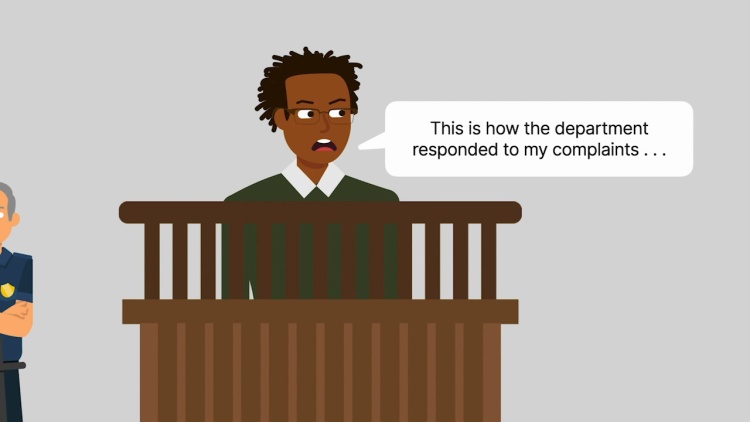Rizzo v. Goode
United States Supreme Court
423 U.S. 362 (1976)
- Written by Rose VanHofwegen, JD
Facts
Gerald Goode and other Philadelphia residents (plaintiffs) brought two class actions against Mayor Frank Rizzo, the city managing director, and the police commissioner (defendants) alleging that city officials encouraged and failed to adequately address police brutality. The individual claimants represented two classes comprising Philadelphia citizens in general and African Americans in particular. The actions sought an equitable injunction requiring the city to adequately address citizen complaints. The district court heard about 250 witnesses over 21 days involving about 40 incidents of police brutality, including some that did not involve victims or police officers named in the actions. The court found the evidence did not show the city officials had an actual policy that violated citizens’ constitutional rights. However, the court found constitutional-rights violations occurred in unacceptably high numbers and were likely to recur and that departmental procedure tended to discourage civilian complaints and minimize discipline for police misconduct. The court directed city officials to draft a comprehensive plan to adequately address civilian complaints and suggested minimal guidelines. The appellate court affirmed, reasoning the ordered revisions were appropriate injunctive relief likely to prevent future abuses. The city officials appealed to the Supreme Court.
Rule of Law
Issue
Holding and Reasoning (Rehnquist, J.)
Dissent (Blackmun, J.)
What to do next…
Here's why 911,000 law students have relied on our case briefs:
- Written by law professors and practitioners, not other law students. 47,100 briefs, keyed to 997 casebooks. Top-notch customer support.
- The right amount of information, includes the facts, issues, rule of law, holding and reasoning, and any concurrences and dissents.
- Access in your classes, works on your mobile and tablet. Massive library of related video lessons and high quality multiple-choice questions.
- Easy to use, uniform format for every case brief. Written in plain English, not in legalese. Our briefs summarize and simplify; they don’t just repeat the court’s language.





